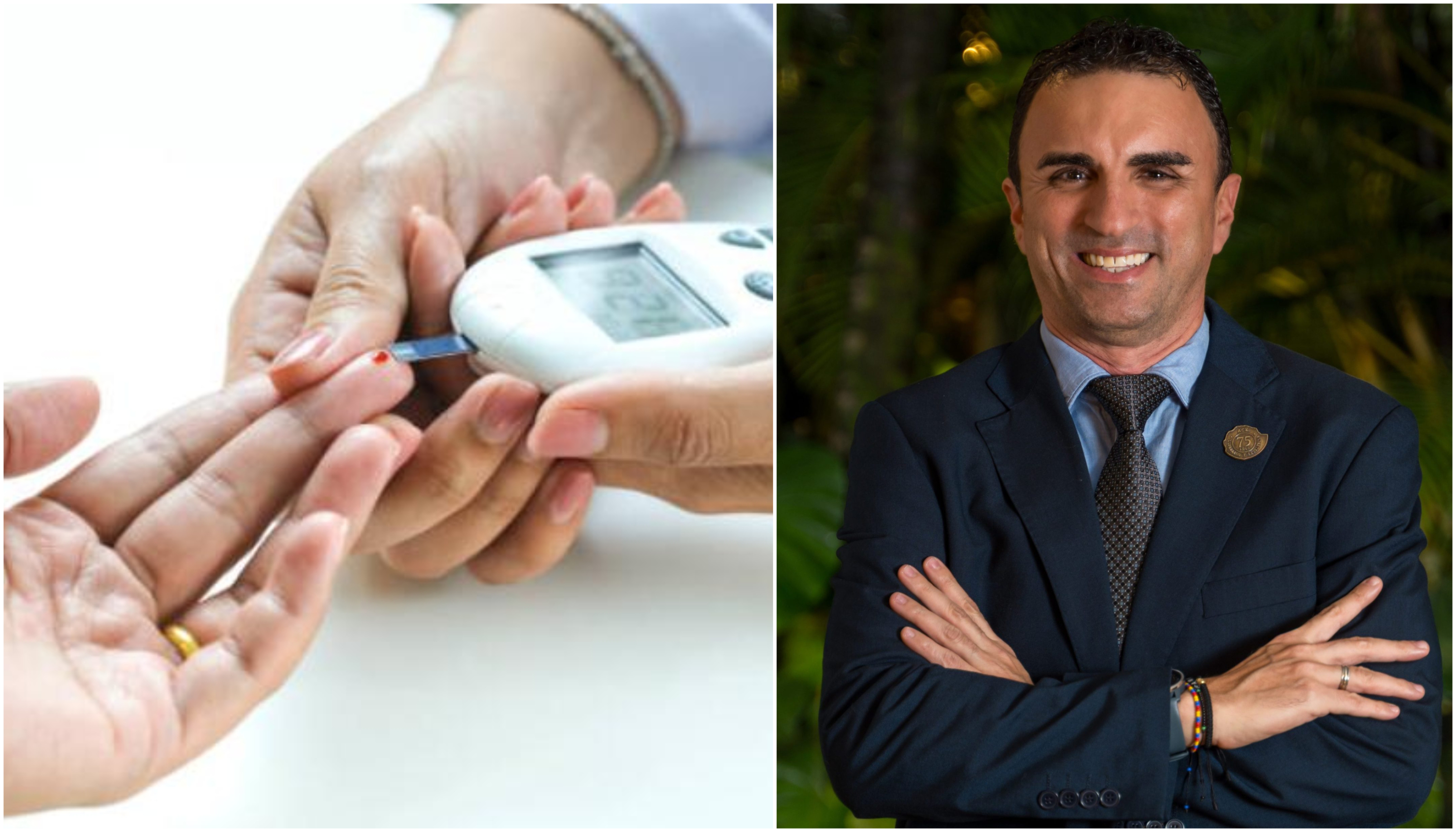This is how you can prevent one of the most common diseases in Colombia, diabetes: key points and foods to avoid

In Colombia, at least three out of every 100 people live with diabetes, and at least half of those who suffer from it don't know it. This chronic disease, which progresses silently, represents one of the greatest public health challenges both in the country and around the world. According to the World Health Organization, more than 650 million people worldwide could be affected by diabetes in the next 15 years.
José Luis Torres Grajales, an internist and endocrinologist and current president of the Colombian Association of Endocrinology, Diabetes, and Metabolism, warns that this condition must be addressed comprehensively and from the earliest stages. "If the patient views it as an ally, they can lead a completely normal life; but if they turn it into an enemy, complications will be inevitable in 5 to 10 years," he asserts.

José Luis Torres Grajales is the president of the Colombian Association of Endocrinology. Photo: ACE
In an interview with EL TIEMPO, the expert urgently calls for early screening, consultation with qualified professionals, and the adoption of healthy habits from childhood. He also emphasizes that treatments cannot be standardized: each person requires a personalized approach. “Medical-nutritional therapy must be individualized. Not all patients have the same conditions or habits,” he explains.
The 8 essentials to prevent diabetes Dr. Torres emphasizes that diabetes prevention is directly linked to cardiovascular health and summarizes the key actions to stay away from this disease in eight points:
- Body weight control
- Regular physical exercise
- Timely medical check-ups, including glucose screenings
- Monitoring cholesterol and triglycerides
- Blood pressure control
- Balanced diet
- Adequate rest and quality sleep
- Stress reduction and promotion of healthy habits from an early age
"Rest is a factor we have underestimated. The quality and quantity of sleep affects the body's biological rhythms and can increase cardiovascular risk if not managed properly," he points out.

Good sleep hygiene is essential. Photo: iStock
Diet plays a decisive role in both the prevention and management of diabetes. Torres is clear in pointing out which foods should be limited or eliminated: “The first is sugar, including sugary drinks like soda. Even zero-sugar versions can contain unhealthy compounds,” he says.

Avoiding soda because of its high sugar content is essential to prevent diabetes. Photo: iStock
Added to this are refined flours, sausages, and saturated fats. “Bread, for example, in excess, contributes to increased body fat. And it's not that fat is bad—we need it to live—but the problem is how it accumulates and where it's distributed, especially in the abdomen, which is an indicator of high cardiovascular risk, especially in men,” she emphasizes.
The specialist doctor encourages us to return to a more traditional and natural diet: vegetables, fruits, legumes, nuts, and fresh foods, instead of ultra-processed ones. "It means going back to the market and staying away from the supermarket," he summarizes.
Poorly controlled diabetes can change everything. The risks of ignoring the disease are alarming. According to the endocrinologist, untreated diabetes can lead to heart attacks, strokes, kidney failure, vision loss, and amputations due to poor circulation. "The leading cause of non-traumatic amputation is diabetes," he points out.
That's why she insists on early detection and education from early stages, including pregnancy and childhood. "Children are more sedentary, more exposed to screens, and eating worse. We need nutritional education in schools and a culture of prevention from childhood," she says.

Sedentary children are at greater risk for diabetes. Photo: iStock.
Finally, Torres urges people to consult reliable sources and turn to endocrinologists as specialists in these matters. “At the Colombian Endocrinology Association, we work for the well-being of the population. Timely diagnosis and well-targeted treatment make all the difference in a healthy life,” he concludes.
Environment and Health Journalist
eltiempo





